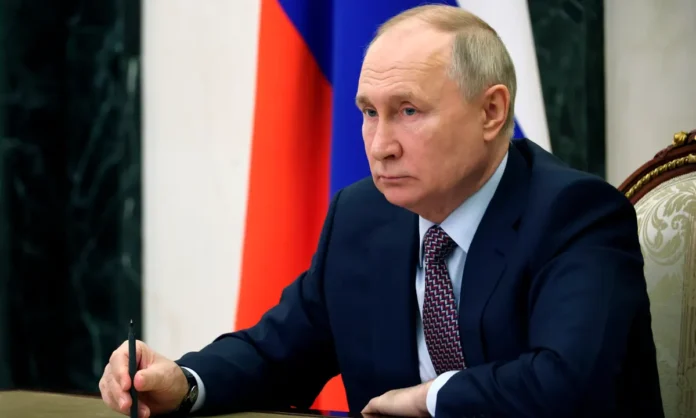Author: Dimitri K. Simes
Affiliation: The Center for the National Interest
Organization/Publisher: The National Interest
Date/Place: February 25, 2021/ USA
Type of Literature: Debate Article
Word Count: 2233
Link:https://nationalinterest.org/feature/getting-serious-about-russia-178832
Keywords: Russia-Putin, US-Biden, Hegemony, Confrontation, and Coexistence
Brief:
The article comes in the context of a debate that appeared in the recent issue of the National Interest magazine between Russian expert Dimitri Simes and American specialist in Russian affairs John Herbst. The main two questions of this debate were: How should Biden deal with Russia? Are relations between the United States and Russia heading towards coexistence or a potential confrontation? In this article, Dimitri Simes argues that the future of US-Russian relations depends mostly on the choice that America adopts. If the US is not able to give up the option of global hegemony, Russia will be fully prepared to obstruct and challenge it, unless the latter will suffer a military defeat or an internal collapse. The future of relations between the two powers will depend on how accurately the Biden administration defines the US and its fundamental interests. Is it a hegemon democratic empire determined and committed to shaping and implementing international rules of the game? Or, is it a leading geopolitical and economic power, self-restrained and ready to define these interests in a narrow way that allows other countries to live in one way or another according to their own standards, as long as they do not directly challenge the US? Furthermore, the author explains the way Russia-Putin behaves, its “aggressive” drives towards the West, its possible playing cards, and the limits of its ability to challenge the US, especially in the Russian neighborhood. On the other hand, he offers a set of recommendations to the Biden administration on the best way to deal with resurgent Russia. The first thing that Washington should take into account is to take Russia seriously as an important power on the international scene, and as the only power capable of the physical destruction of the United States. Washington should also realize that Russia is reluctant to build more constructive relations with the US as long as it believes that Washington is leading a hostile effort against it aimed at undermining Russia’s international status and its internal stability. Despite its limited economic and demographic strength, Russia has a growing technological, military, cyber, and even medical strength, thanks to its highly scientific labor force. Also, Moscow has graduated in military engagement and has been imposing its regional influence since the beginning of the twenty-first century. Now, it uses hybrid wars, after it felt that the West was engaged against it in the neighborhood in what was called the color revolutions. The Ukrainian front comes at the top of the areas of tension and clash. Russia could also harm the US (if Washington recklessly makes Moscow as a target for its foreign policy) by interfering in American domestic politics, launching cyber-attacks, supporting anti-American insurgents, deploying hybrid military action against targets in Ukraine and the Baltic states, harming European allies, as well as causing total destruction in the case of a direct confrontation. The most important thing, Russia is a heavy geopolitical balancer in the current competition between China and the West, as it is likely that Moscow’s choices will have a great impact on the outcome of this competition, which would make Beijing geopolitically more assertive against the US and its allies as long as it feels Moscow’s support. The origins of the tense relations between the two powers are not only due to American behaviour, as it is historically known that Russia has practiced deception and massive disinformation against opponents, which is more harmful to Russian interests, according to the author. In another part of the article, the author offers a set of recommendations for the Biden administration to contain Russia and establish acceptable rules for coexistence. For example, the increased presence of NATO forces in the Baltic and Ukraine is a risky option that will not be useful to contain any Russian aggression. In contrast, the restraint approach is a better option, which would create an atmosphere allowing for a limited partnership, avoiding a military conflict between the two powers, preventing a solid rapprochement between Russia and China, strengthening US military capabilities, and pushing allies to contribute more to defend themselves. In addition, it would be a mistake for Washington to wait for Putin to do what Gorbachev did in the past, i.e. make concessions and wait for the West to do the same later. Today, Russia is unlikely to make any concessions, unless the West makes similar concessions in parallel. The author negates the firm demand of Biden’s administration to the Russian government regarding the release of the Russian dissident Alexei Navalny, as this would show Putin in the cloak of a patriot leader who protects his country against a foreign diktat, as the recent Western pressure in this case has given Russia new justifications for adopting assertive behaviour against the West. Finally, the author believes that the challenge posed by resurgent Russia should not be over-dramatized or oversimplified. He calls for dealing with it through measures that combine force and inducement, like most of the challenges that Washington has faced throughout history.
By: Djallel Khechib, CIGA Senior Research Associate




